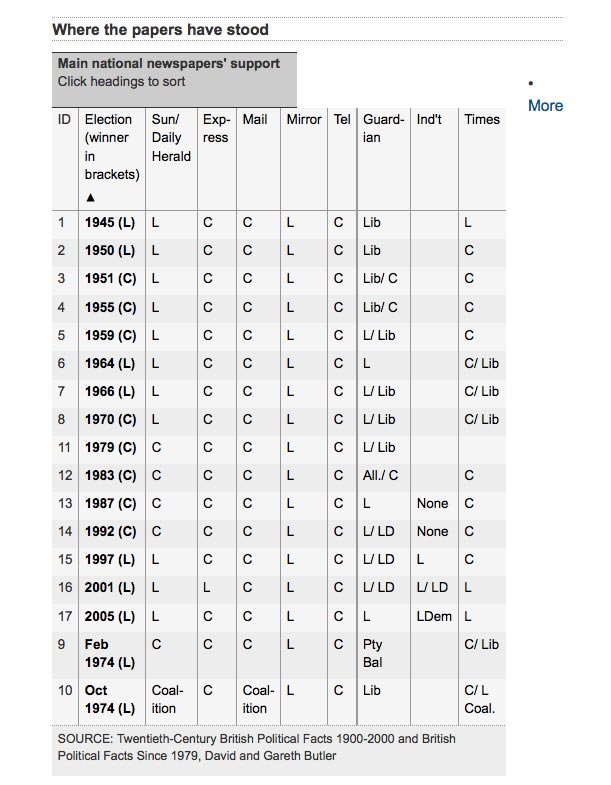Following on from Journalism.co.uk’s coverage of the City University London event on the role of new media in the forthcoming UK election, Elizabeth Davies reviews BBC3’s special Question Time programme for young voters and asks: what can the media, both old and new, do to engage young voters? This post is also featured on her blog.
My name’s Elizabeth, and when this General Election eventually rolls around, I will be a first-time voter. I’m able to say this as if I’m a member of a support group because, quite frankly, I am. The Electoral Commission warned on Wednesday that more than half of 17-25-year-olds are not on the electoral register, paving the way for us to be considered a demographic desperately in need of some political prodding.
Of course, one way to do this is through sensible use of the media. Young voters need to be persuaded to shake off their political torpor, let alone demonstrate some enthusiasm, in a way that neither patronises nor pigeonholes them. As a journalist and young voter myself, I was intrigued to see how BBC3’s First Time Voters’ Question Time aired last night would tackle the issue.
The first depressing sign of what was to follow was the fact that the programme aired at the same time as the England vs Egypt match on ITV1. It doesn’t take a political genius to figure out that such a programming conflict means you’re probably preaching to the converted. A quick glance at the audience confirmed that. The vast majority, if not all, will probably turn up at their polling stations the minute they open.
The three parties selected their youngest and most telegenic representatives – which they considered in this case to be David Lammy, Jeremy Hunt and Julia Goldsworthy – while BBC3 stuck them on a panel with three others who they thought might be able to engage with the “youth”: Rory Bremner, Tim-from-the-first-series-of-the-Apprentice and… Jamelia. I wasn’t the only Twitter user who wondered if she’d wandered on to the wrong programme.
Over the course of an hour the audience managed to whine about politicians’ failure to talk about important policies and then illustrate, with the help of BBC3’s question selector, that what they cared about politically was failing to land a high-paying job the minute they graduated, celebrities, and indie music. Perhaps I’m being too harsh. Occasionally panellists and audience members did edge towards something resembling real political debate. But, as a rule, this special version of Question Time managed to both patronise and pigeonhole those of us who grew up under New Labour. That’s some feat.
Perhaps you have to give BBC3 points for trying – but those points don’t really count for very much when they’re unlikely to spur even one of those young people into making sure they’re registered to vote. As an attempt, it was pretty feeble. Nick Robinson may consider social media “self-important and narcissistic tosh”, but as we all know, 17-25 years are narcissistic and self-important. Yes, we got a Twitter account whose name was occasionally flashed up on screen, but what about a hashtag so we could debate these issues? What about the Twitter names of the panellists so the conversation could be taken wider than the studio? What about some kind of attempt to engage with Facebook given that we are, supposedly, the “Facebook generation”? What about – God forbid – an actual webpage for the programme where specific information about party policies can be posted and discussed?
Time and time again Barack Obama was held up as a shining example of a politician who got the youth excited because he talked about the issues and also let his true personality shine through in a way untainted by spin or the media. This demonstrated successfully that it isn’t only young people, but the programme’s panellists, who fail to read the news properly. Gordon Brown and David Cameron will take to the podium for the much-vaunted leaders’ debates schooled in the finest of the Obama arts, from those who know them best – Obama’s own advisers.
In the end, it may be up to those leaders’ debates and the media discussion around them to push voters of all ages towards showing an interest in the political future of their country. Yes, I do worry about the “Americanisation” of British politics the leaders’ debates and the subsequent exertions of party spin machines could create. But it may take that kind of wall-to-wall exposure to grab people’s attentions. In the final five minutes of the show, one of the audience members made the only sensible comment of the entire hour: you can complain all you want about politicians failing to lay out their policies, but young people need to show some initiative and actually go out to look for them. Journalists have a responsibility to be the vessel for that search, and to make it far more than a token gesture.
Young voters should not march themselves down to a polling station purely for the sake of it. But if the media considers carefully how it can grab their attention in an adult and informed manner, then it will do them, and the country, a huge service. And, you never know – it might just win itself a vital generation of new followers at the same time.
